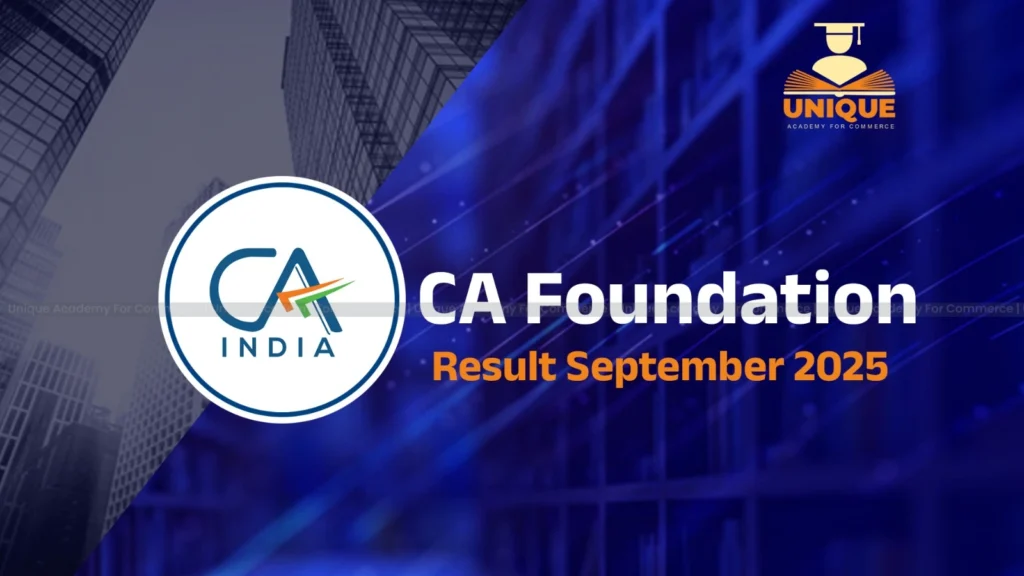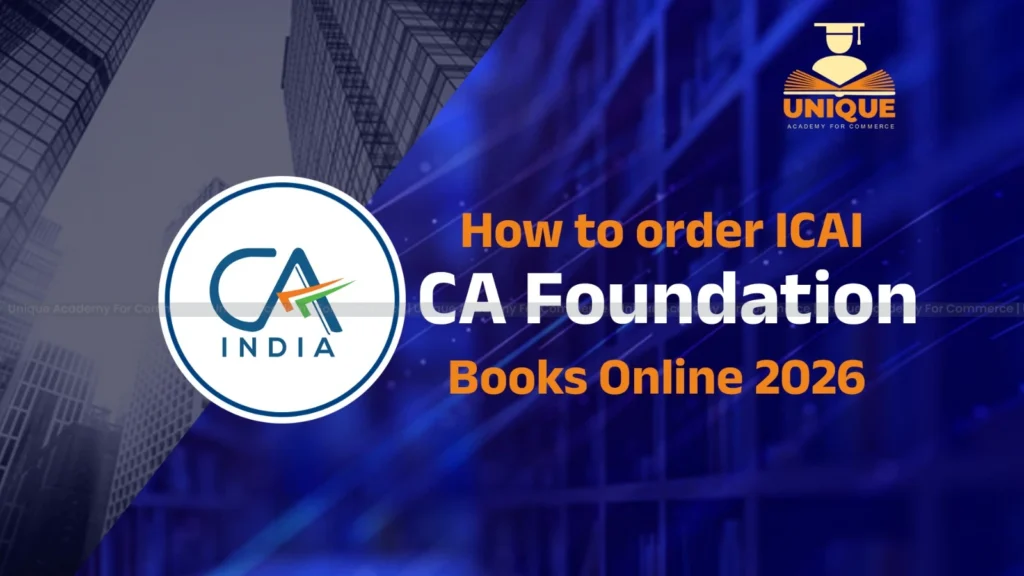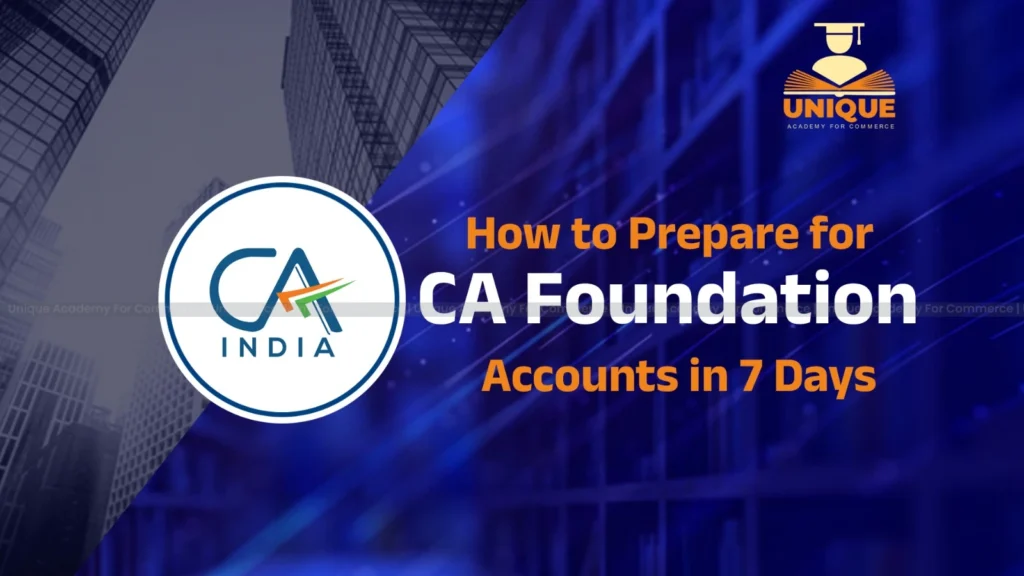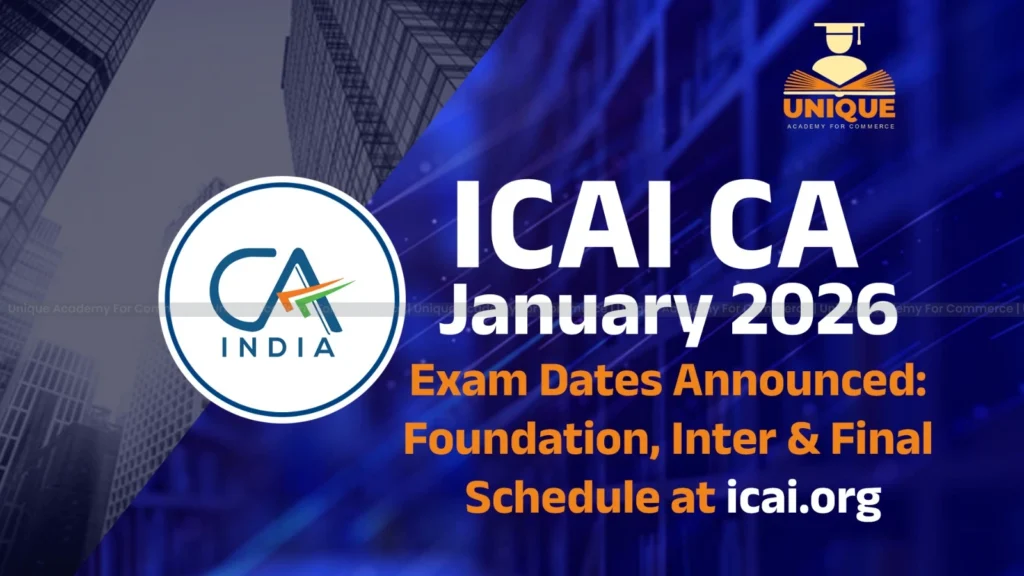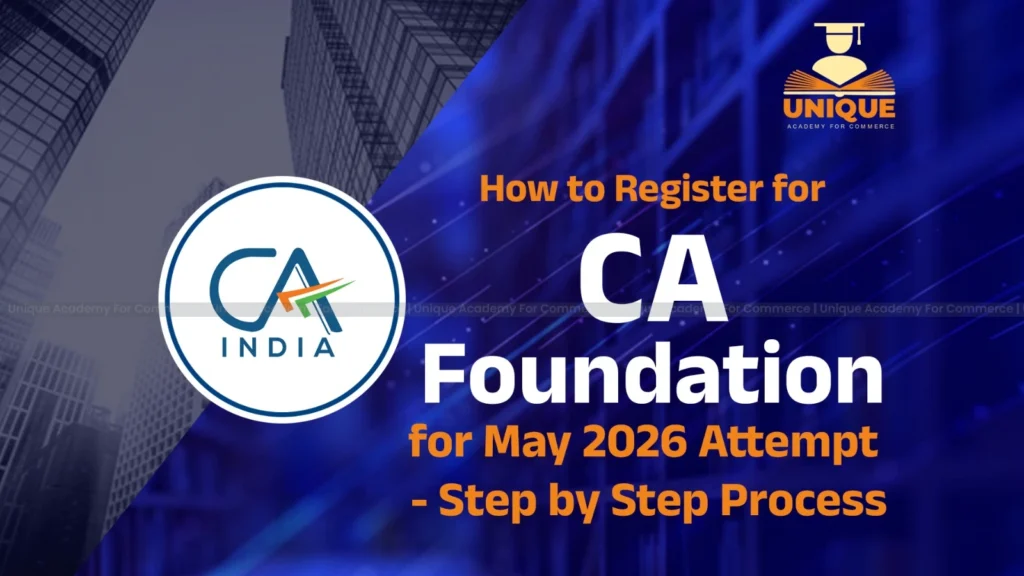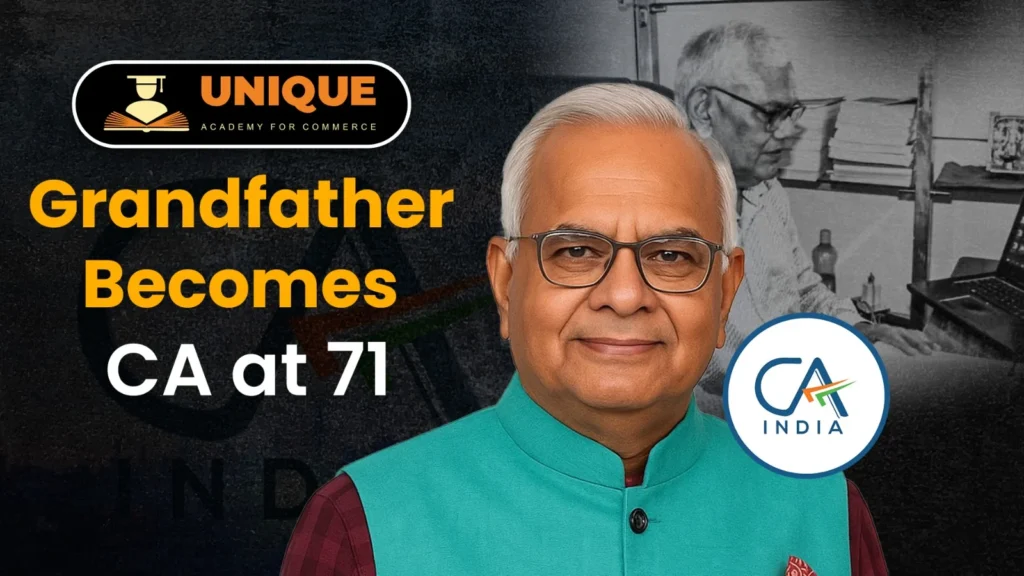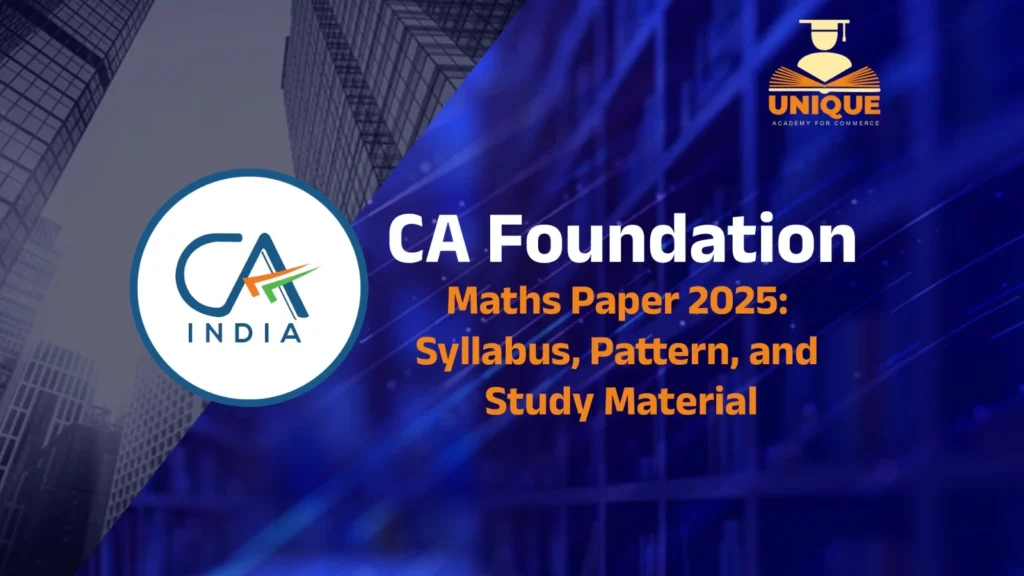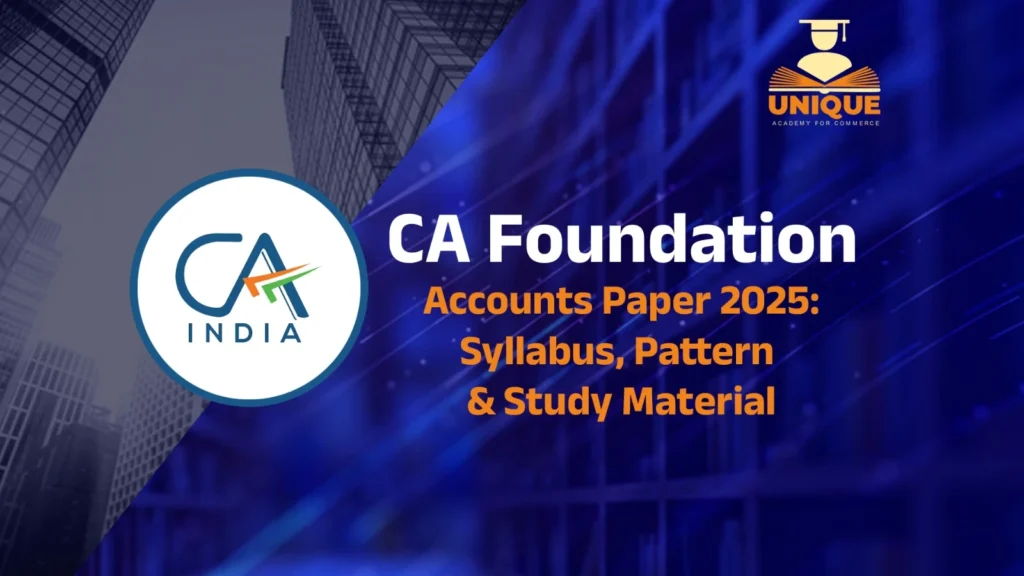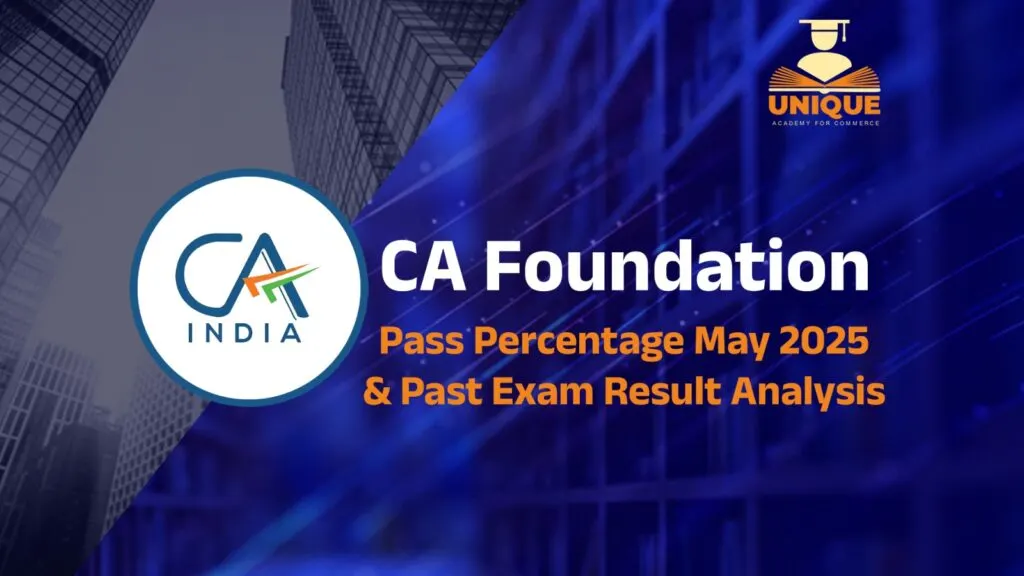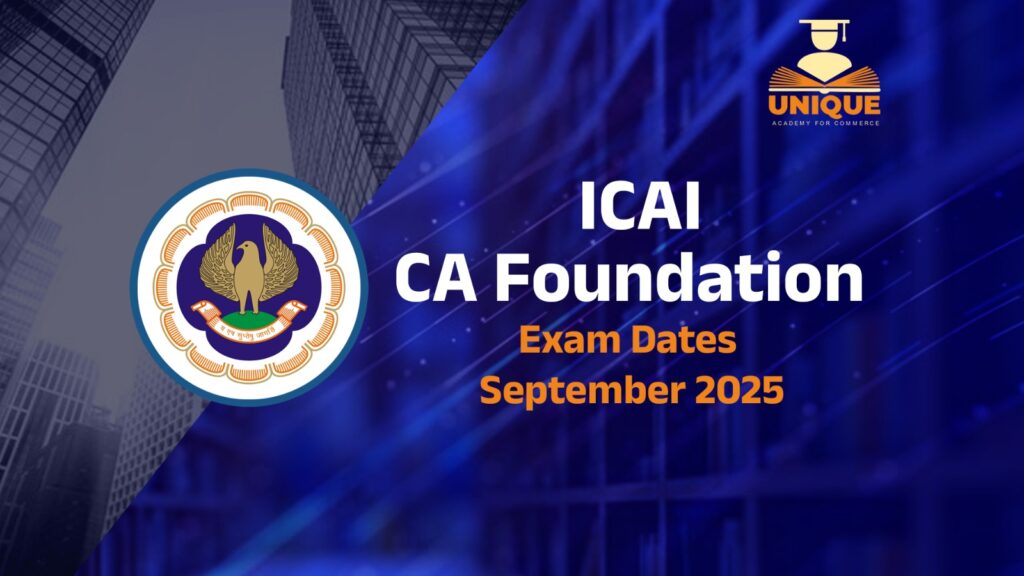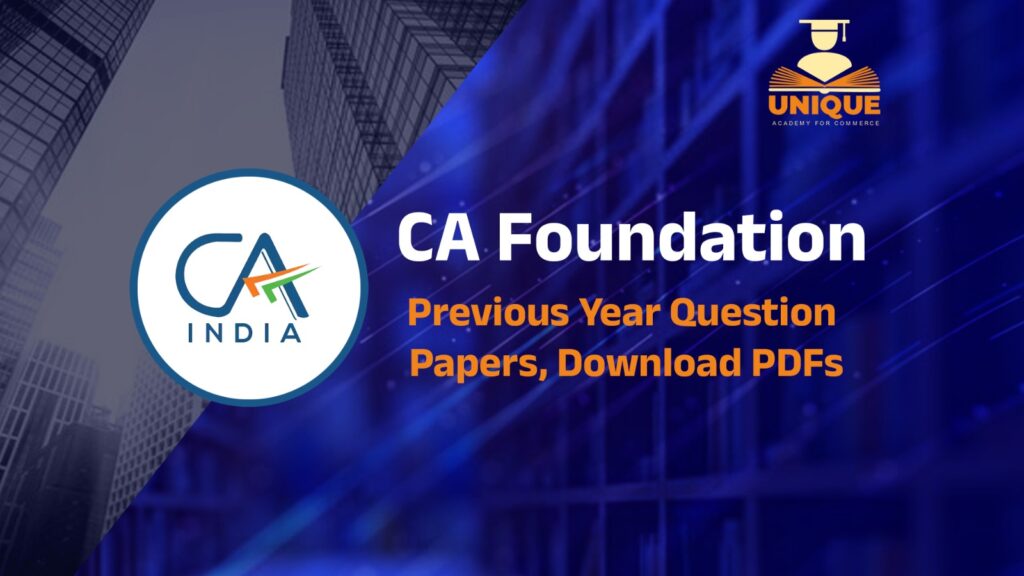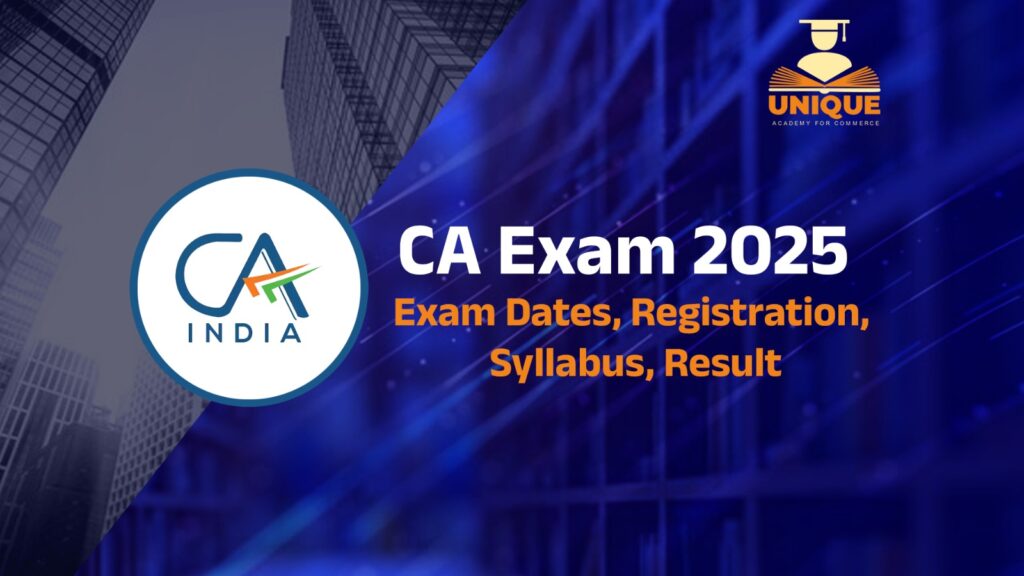How to Clear CA Foundation in First Attempt – Tips by Qualified CA

CA Foundation is the first stage of the professional course of Chartered Accountancy. The foundation stage is basically designed to inculcate basic and preliminary knowledge and understanding of the CA program for the 12th passed students/ Graduate students. How to Clear CA Foundation in First Attempt. The main objective is to make students capable and competent to act as Chartered Accountants in companies or in professional and consultancy firms).
As we all know that the Chartered Accountancy Course is a distance learning professional course offered by The Institute of Chartered Accountants of India. It is a professional course which is not only a reputed one rather is very lucrative in terms of salary.
Students who are interested to pursue this course has to undergo different stages of examinations along with some practical training sessions.
The different stages of examination includes the following-
- Foundation Programme
- CA Intermediate Programme
- CA Final Programme
CA Foundation Examination- Some details
CA Foundation is an entry level exam being held by the Institute of Chartered Accountants of India. It’s an offline paper pen based examination which is conducted either in English or Hindi language, i.e. both the options are available for the candidate.
There are 4 papers divided as subjective and objective in CA Foundation Programme-
| Paper 1 | Principles and Practices of Accounting | Subjective |
| Paper 2 | Business Laws and Business Correspondences | Subjective |
| Paper 3 | Business Mathematics, Logical Reasoning and Statistics | Objective |
| Paper 4 | Business Economics and Business & Commercial Knowledge | Objective |
Duration of CA Foundation Exam
CA Foundation Exams are scheduled to be held two times in a year i.e. in the months of May & November.
CA Foundation Syllabus and Exam Pattern
CA Foundation Examination Pattern
- There is a set of 4 papers
- Paper 1 & 2 are subjective whereas Paper3 & 4 are objective type
- Each paper will carry 100 marks
- Maximum time duration will be 3 hours
- There will be no negative marking in Paper 1 & 2
- Paper 3 & 4 will have negative marking i.e. ¼th mark will be deducted for each wrong answer
- Exams will be conducted through offline mode
- Papers will be available in Hindi and English but Section B of Paper 2 will be conducted in English Medium only
CA Foundation Examination December 2021
13th, 15th , 17th & 19th December 2021 are the dates finalised for the same.
How to Clear CA Foundation in First Attempt Study Plan for CA Foundation Exam May 2022
At the outset, every student has to ensure following-
- Proper timetable allotting required time for each subject is required to be made
- Complete and primary focus should be on the institute’s study material
- Frequent and proper revision of the entire syllabus at least 3-4 times is a must.
- Making summary notes for all the subjects for quick revision
- Practice a lot of MCQs to maintain speed and accuracy for the objective type question papers
- Regular practice of attempting Previous Year Question Papers will help in analyzing the trend of Examination.
- If required , the students can also enrol for the test series. It will help in time management and practice.
1. Ensure complete understanding of the CA Foundation Material
The Institute of Chartered Accountants of India (ICAI) provides study material for the candidates preparing for CA Foundation exam. Go through those study materials along with some reference books as recommended by experts. Conceptual understanding and correlations among various topics are the best strategies you can adopt while preparing for theoretical topics because everything is correlated. Don’t focus on memorizing, but understanding and analyzing the topic.
Before reading further check out these posts:
How to do CA Foundation Registration 2021
2. Practice of making notes
While studying the chapters make short and handy notes of the topics. This will not only help in noting down the important points but also help in remembering the topics for the future. Keep a small notebook handy while studying a new chapter. Focus on writing for theoretical subjects. It will not only improve the writing speed but also help remember the topics easily. Practice as much as you can before the exams, do the writing instead of just learning formulas.
3. Start with a proper Time Table
Prepare a timetable or study routine so that all the CA Foundation Syllabus is covered within a given time period. It is necessary to dedicate most of the time to CA Foundation exam preparation. The aim should be to complete one chapter at a time. After doing that, refer to the practice manual, scanner, and gauge if the coverage is maximum.
Time tables can be made on a weekly or monthly basis with breakups in between.
4. Setting targets
Set targets for a day that is achievable. Do not set such targets which are impossible to achieve. It will only lead to exam burden and not help in any way. Aspirants must try to finish the entire syllabus at least three months before the main exam. One and a half months should be dedicated for revision. During the revision phase-only go through the previous chapters which are completed, and focus on improving the weaknesses
5. Analysing the actual performance very week
Analyze every week’s target and check if there are any backlogs. Monitor the effort put in and revise the schedule accordingly.
6. Never Do following-
- Never go with selective topics, go through each and every concepts and chapter thoroughly.
- Never refer old study material. Before every attempt, you can find all the supplements, practice paper, ICAI Study Material, amendment of all sorts in every subject
- Try to finish your revision beforehand, do not leave anything undone or partly done. Time management is the key.

Some reference books for CA Foundation Preparation
- Shuchita Prakashan Scanner CS Executive Programme (Green Edition) Paper-1 Jurisprudence, Interpretation And General Laws for June 2020 Exam
- CS Executive Paper 1 Jurisprudence, Interpretation and General Laws (Google Drive + Printed Book)
- Company Law
- Company Law Made Easy
- Company Law – Paper Objective Compilation
- Shuchita Prakashan Scanner CS Executive Programme Module – I (2017 Syllabus) Paper – 3 Setting Up Of Business Entities And Closure For June 2020 Exam
- Shuchita Prakashan Scanner CS Executive Programme (Green Edition) Paper-3 Setting Up Of Business Entities And Closure for June 2020 Exam
- Shuchita Prakashan Scanner CS Professional Programme Module I (2017 Syllabus) Paper-2 Advanced Tax Laws (Applicable For June 2021)
- CS Executive Paper 4 Tax Laws (Google Drive + Printed Book)
- Tax Laws & Practice With MCQs
- Management Accounting
- Shuchita Prakashan Scanner CS Executive Programme (Green Edition) Paper-5 Corporate And Management Accounting for June 2021 Exam
- Shuchita Prakashan Scanner CS Executive Programme (Green Edition) Paper-6 Securities Laws And Capital Market for June 2021 Exam
- Solution Securities Laws and Compliance
- Shuchita Prakashan Scanner CS Executive Programme (Green Edition) Paper-7 Economic, Business And Commercial Laws for June 2021 Exam
- Shuchita Prakashan Scanner CS Executive Programme Module-II (2017 Syllabus) Paper-7 Economic, Business And Commercial Laws (Applicable For June 2021)
- Strategic Financial Management
- Shuchita Prakashan Scanner CS Executive Programme (Green Edition) Paper-8 Financial And Strategic Management for June 2021 Exam
CA Foundation Course Syllabus
ICAI has prescribed detailed syllabus w.r.t. each paper and content which will be part of the test. Following are the topics and subjects which are required to be part of the test. Students are expected to understand and have a proper grip on the topics. A proper SWOT analysis should be done by the students w.r.t. topics. The focus should be more on the topics/ subjects which seems tough or difficult for them.
| PRINCIPLES AND PRACTICE OF ACCOUNTING | Theoretical Framework Accounting Process Bank Reconciliation Statement Inventories Concept and Accounting of Depreciation Accounting for Special Transactions Introduction to Company Accounts Final Accounts of Sole Proprietors Partnership Accounts Financial Statements of Not-for-Profit Organizations |
| BUSINESS LAWS AND BUSINESS CORRESPONDENCEAND REPORTING | The Indian Contract Act, 1872: An overview of Sections 1 to 75 covering the general nature of contract, consideration, other essential elements of a valid contract, performance of contract, breach of contract, Contingent and Quasi Contract. The Sale of Goods Act, 1930: Formation of the contract of sale, Conditions and Warranties, Transfer of ownership and delivery of goods, Unpaid seller and his rights. The Indian Partnership Act, 1932: General Nature of Partnership, Rights and duties of partners, Reconstitution of firms, Registration and dissolution of a firm. The Limited Liability Partnership Act, 2008: Introduction- covering nature and scope, Essential features, characteristics of LLP, Incorporation and differences with other forms of organizations. The Companies Act, 2013 : Essential features of company, corporate veil theory, Classes of companies, types of share capital, Incorporation of company, Memorandum of Association, Articles of Association, Doctrine of Indoor Management Communication Sentence Types (Direct-Indirect, Active -Passive Speech)Vocabulary Root Words, Synonyms, Antonyms, Prefixes, Suffixes), Phrasal verbs, Collocations and Idioms. Comprehension Passages and Note Making Introduction to Basic Writing Précis Writing Article Writing Report Writing Writing Formal Letters Writing Formal Mails Resume Writing Meetings |
| BUSINESS MATHEMATICS, LOGICAL REASONINGAND STATISTICS | Ratio and Proportion, Indices and Logarithms Equations and Matrices Linear Inequalities with Objective Functions and Optimization w.r.t. objective function. Time value of Money Permutations and Combinations Sequence and Series Sets, Relations and Functions Basic applications of Differential and Integral calculus Logical Reasoning Statistical description of Data Measures of Central tendency and Dispersion Probability Theoretical Distributions Correlation and Regression Index Numbers and Time Series |
| BUSINESS ECONOMICS AND BUSINESS ANDCOMMERCIAL KNOWLEDGE | Introduction to Business Economics Theory of Demand and Supply Theory of Production and Cost Price Determination in Different Markets Business Cycles Business and Commercial Knowledge – An Introduction Business Environment Business Organizations Government Policies for Business Growth Organizations Facilitating Business Common Business Terminologies |






